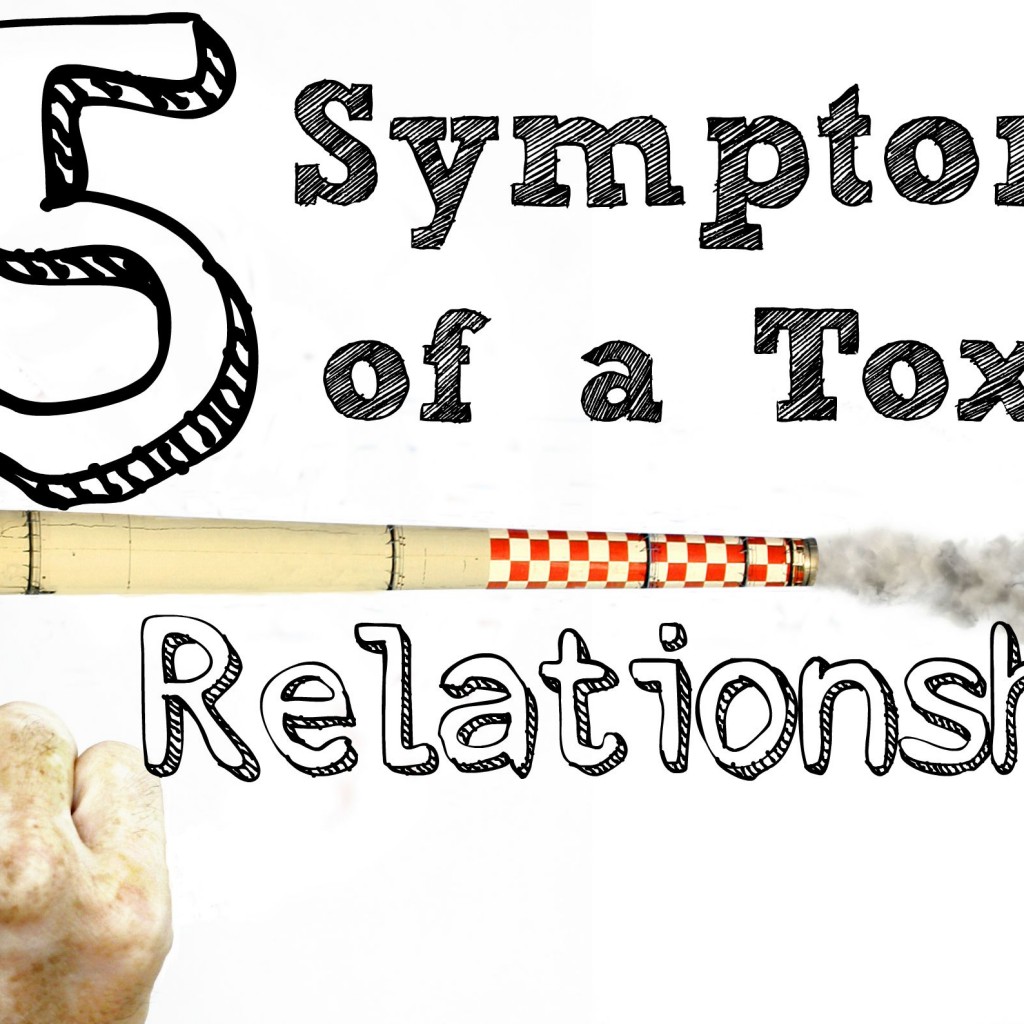You know that queasy feeling you get sometimes in a relationship? You want it to work but the more you try the worse you feel? Our bodies have a way of warning us something is not right. A queasy feeling may be a symptom of a toxic relationship.
It’s not that what you’re doing is wrong per se. In relationships, doing the right thing doesn’t guarantee a good outcome. It takes two people doing right things to create a healthy relationship.
[Tweet “In relationships, doing the right thing doesn’t guarantee a good outcome.”]
So, how do you know if your relationship is toxic? Here are 5 symptoms of a toxic relationship.
One partner is working harder than the other
I see this symptom a lot in my work as a relationship coach and counselor. One person is always taking the lead in the relationship, usually the woman. Guys lose interest in the romance and take the woman for granted.
If you are working harder than your spouse/partner it may be an early symptom of a toxic relationship. I suggest you address this quickly and see if your mate can put more skin in the game. If not, you may want to end it early before your relationship becomes toxic.
The relationship goes one way
Self-absorbed individuals are toxic partners in a relationship. Avoid them at all cost. They are takers, not givers. Sheryl Crow wrote about them in her hit song, Anything But Down –
“I give you everything that floats into your mind. But you don’t bring me anything but down.”
In my book,
“Bringing Respect Back: Communicating Without the Conflict”, I wrote a chapter about one-sided relationships. These are toxic because they lack a key element in healthy relationships. It’s called reciprocity. Reciprocity is a mutual give-and-take pattern that demonstrates caring behavior.
If you are always giving and rarely receiving, you are in a toxic relationship. Confront this problem. Do not tolerate it. Your needs are important too!
Untreated mental health condition
Individuals with
untreated conditions like mood or anxiety-based disorders are not doing themselves or others any good. These conditions are manageable under the care of capable mental health professionals. To expect others to simply deal with the effects of these untreated conditions is unfair.
If you are with someone who is unwilling to address their mental health condition or addiction you are in a toxic relationship. You do not have to put up with it. Nor is it your problem to manage. Confront your spouse/partner about this. Warn them that they may lose you if they do not address the condition.
The Like Factor is Missing
It’s hard to imagine but some couples stay together who no longer like each other. They fought many wars and are battle weary. Conflicts never get resolved. They live in a perpetual cold war. The like factor is missing-in-action.
If you no longer like each other you are in a toxic relationship.
You stay because you are afraid to leave
Healthy relationships are based on love. Toxic relationships are maintained by fear.
Some people are afraid of being alone. Others are afraid of failing. Still, some mistakenly believe their mate will change.
If you are no longer happy, but afraid to leave, you are in a toxic relationship.
I understand this is a difficult place to be. It gives you that queasy feeling inside, right? If your love is unsustainable maybe it is time to leave. Don’t think the outcome of leaving as a bad thing. It can actually be really good for you.
I ask clients to make a list of the advantages and disadvantages of ending a toxic relationship. Usually the list of advantages is much longer. This helps inform their next step.
It takes a little courage and some effort to leave a toxic relationship. Once you do it, you will be free of the symptoms and start feeling better again.
[Tweet “Healthy relationships are based on love. Toxic relationships are maintained by fear.”]
Now it’s your turn
Based on the 5 symptoms, how is the health of your relationship? If your relationship is reciprocal then you should be getting energy from it. If it is not, it will feel draining.
Are you a giver or taker? If you contribute to the symptoms by your behavior, I recommend you make some changes before the toxicity destroys your relationship.
Feel free to leave comments below. I’d be interested in learning how others dealt with toxic relationships.
Be sure to like the article and subscribe to my blog if you haven’t done so already!

